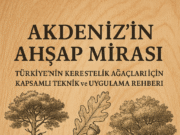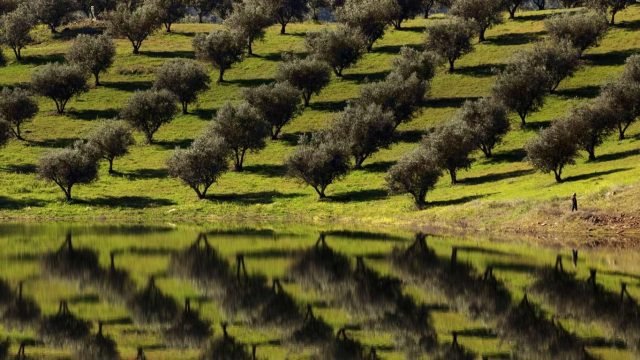The number of Olive Trees is increasing, but the olive production is decreasing!
This number is the second largest in the world after Spain. country with the second largest olive tree wealth However, the decline in production also indicates that there are serious problems in the sector. One of them is the decline in production due to global climate change. However, experts draw attention to a second problem. That is the question of how well the data and incentives are used. “According to the report of the National Official Determination Committee for Olive and Olive Oil Yield, there is a decrease of 5 percent in the production of olives and 16 percent in olive oil compared to the previous year. This issue was also brought up on the 11th Olive Harvest Days in Ayvalık. Ali Ekber Yıldırım stated that 2 kilograms less yield was obtained per tree and said, “There are no trees or the right place was not chosen for the trees planted. For example, Gemlik was planted in Antakya.” He expressed his views. In order to increase the presence of olive trees, support per acre was initiated in 2005 for the producer to plant olives. An incentive of 30 YTL per acre and then 250 new liras was paid to the olive planter. At the beginning of 2007, support was limited to Gemlik and Ayvalık types. Then, the support given to Gemlik olives was reduced to 45 YTL on the grounds that it was not of good quality. Ultimately, two questions need to be answered: Was the right variety selected? Is it planted in the right place?

Today, the consumer in Turkey eats the most expensive olive oil among producer countries. This shows that the lack of planning in production should be questioned urgently. After Spain, Italy, Greece and Syria, Türkiye ranks 5th in olive oil production. The concern is expressed that the demand for olive oil may decrease due to the fact that the prices in our country, where olive oil consumption has started with a successful promotion attack, but in recent years.
Zeytini kendi coğrafyasında zeytinyağına dönüştürmek hedefiyle 2008 yılında Anadolu Zeytinyağ projesini başlatan Nar Gourmet, Sanayi Bakanlığı’nın Santez hibe ve Ankara Üniversitesi’nin bilimsel desteği ile 2 yıl önce hayata geçirdiği mobil zeytinyağı ünitesi ile Anadolu’yu dolaşarak zeytini tarlada zeytinyağına dönüştürüyor. Nar Gourmet Genel Müdürü Samir Bayraktar ile Ayvalık Mutluköy’de TIR’ı gezdik ve nasıl zeytinin 1 saat kadar kısa bir sürede soğuk sıkma yöntemi ile zeytinyağına dönüştüğünü izledik. 12 Ekim’de Mersin-Silifke’den yol alan Tır’ın, sırasıyla Hatay, Kilis, Gaziantep, Antalya’dan sonra Ayvalık’a 6 Kasımda vardığını belirten Bayraktar “amacımız bir yandan da Türkiye’de bölgelerin zeytin gen kaynaklarını bilimsel olarak ortaya çıkarmak. Türkiye’de tescil edilen 90 adet zeytin çeşidinin yalnızca %10’u ekonomik bir değer taşıyor. Bu da bir tır ile mobil hale gelen zeytinyağı işleme tesisinin her bir bölgenin mahsülünden yüksek kalite zeytinyağı elde edebilme açısından önemini daha fazla ortaya koyuyor” dedi. Yeni hasat döneminde; Mardin Halhalı, Kilis, Hatay Savrani, Mersin Sarıulak, Mersin Silifke, Antalya Tavşan Yüreği, Antalya Beylik, Muğla Memecik, Aydın Memecik, Manisa Uslu ve Balıkesir Ayvalık zeytinyağlarının lezzet sofralarındaki yerini alması hedefleniyor.

Türkiye took the lead of “Slow Olive”…
It has been reported that the first meeting of Slow Olive, which was created to carry out studies on olive and olive oil at an international level, will be held in Mardin, the homeland of olives, in April next year. Slow Food International Council Member and Chairman of Intellectual Palates Defne Koryürek “We think that in the world of Slow Food, “Turkey should be the center of olive and olive oil”. We think we deserve it with the richness of our gene resources.”






























